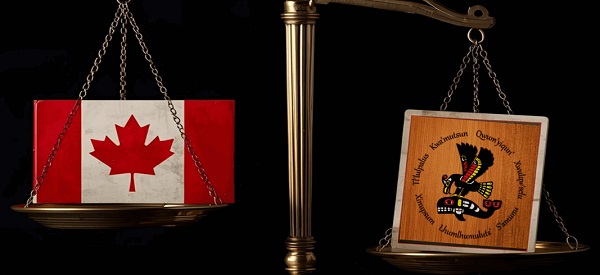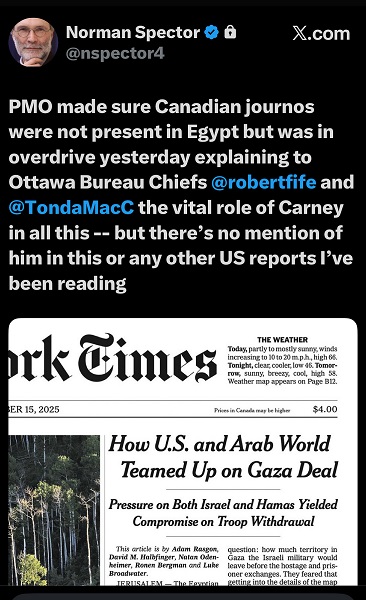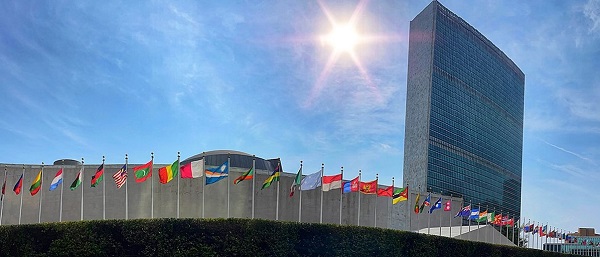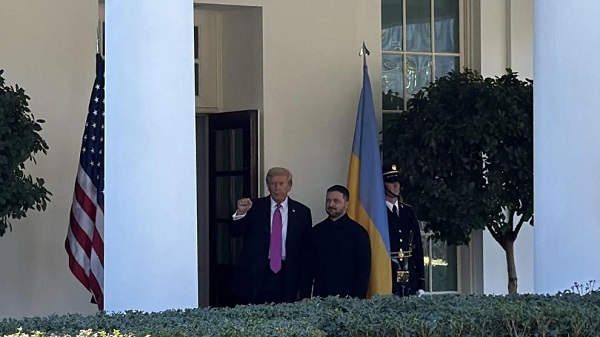Business
Ted Cruz, Jim Jordan Ramp Up Pressure On Google Parent Company To Deal With ‘Censorship’

From the Daily Caller News Foundation
By Andi Shae Napier
Republican Texas Sen. Ted Cruz and Republican Ohio Rep. Jim Jordan are turning their attention to Google over concerns that the tech giant is censoring users and infringing on Americans’ free speech rights.
Google’s parent company Alphabet, which also owns YouTube, appears to be the GOP’s next Big Tech target. Lawmakers seem to be turning their attention to Alphabet after Mark Zuckerberg’s Meta ended its controversial fact-checking program in favor of a Community Notes system similar to the one used by Elon Musk’s X.
Cruz recently informed reporters of his and fellow senators’ plans to protect free speech.
Dear Readers:
As a nonprofit, we are dependent on the generosity of our readers.
Please consider making a small donation of any amount here. Thank you!
“Stopping online censorship is a major priority for the Commerce Committee,” Cruz said, as reported by Politico. “And we are going to utilize every point of leverage we have to protect free speech online.”
Following his meeting with Alphabet CEO Sundar Pichai last month, Cruz told the outlet, “Big Tech censorship was the single most important topic.”
Jordan, Chairman of the House Judiciary Committee, sent subpoenas to Alphabet and other tech giants such as Rumble, TikTok and Apple in February regarding “compliance with foreign censorship laws, regulations, judicial orders, or other government-initiated efforts” with the intent to discover how foreign governments, or the Biden administration, have limited Americans’ access to free speech.
“Throughout the previous Congress, the Committee expressed concern over YouTube’s censorship of conservatives and political speech,” Jordan wrote in a letter to Pichai in March. “To develop effective legislation, such as the possible enactment of new statutory limits on the executive branch’s ability to work with Big Tech to restrict the circulation of content and deplatform users, the Committee must first understand how and to what extent the executive branch coerced and colluded with companies and other intermediaries to censor speech.”
Jordan subpoenaed tech CEOs in 2023 as well, including Satya Nadella of Microsoft, Tim Cook of Apple and Pichai, among others.
Despite the recent action against the tech giant, the battle stretches back to President Donald Trump’s first administration. Cruz began his investigation of Google in 2019 when he questioned Karan Bhatia, the company’s Vice President for Government Affairs & Public Policy at the time, in a Senate Judiciary Committee hearing. Cruz brought forth a presentation suggesting tech companies, including Google, were straying from free speech and leaning towards censorship.
Even during Congress’ recess, pressure on Google continues to mount as a federal court ruled Thursday that Google’s ad-tech unit violates U.S. antitrust laws and creates an illegal monopoly. This marks the second antitrust ruling against the tech giant as a different court ruled in 2024 that Google abused its dominance of the online search market.
Business
US government buys stakes in two Canadian mining companies

From the Fraser Institute
Prime Minister Mark Carney recently visited the White House for meetings with President Donald Trump. In front of the cameras, the mood was congenial, with both men complimenting each other and promising future cooperation in several areas despite the looming threat of Trump tariffs.
But in the last two weeks, in an effort to secure U.S. access to key critical minerals, the Trump administration has purchased sizable stakes in in two Canadian mining companies—Trilogy Metals and Lithium Americas Corp (LAC). And these aggressive moves by Washington have created a dilemma for Ottawa.
Since news broke of the investments, the Carney government has been quiet, stating only it “welcomes foreign direct investment that benefits Canada’s economy. As part of this process, reviews of foreign investments in critical minerals will be conducted in the best interests of Canadians.”
In the case of LAC, lithium is included in Ottawa’s list of critical minerals that are “essential to Canada’s economic or national security.” And the Investment Canada Act (ICA) requires the government to scrutinize all foreign investments by state-owned investors on national security grounds. Indeed, the ICA specifically notes the potential impact of an investment on critical minerals and critical mineral supply chains.
But since the lithium will be mined and processed in Nevada and presumably utilized in the United States, the Trump administration’s investment will likely have little impact on Canada’s critical mineral supply chain. But here’s the problem. If the Carney government initiates a review, it may enrage Trump at a critical moment in the bilateral relationship, particularly as both governments prepare to renegotiate the Canada-U.S.-Mexico Agreement (CUSMA).
A second dilemma is whether the Carney government should apply the ICA’s “net benefits” test, which measures the investment’s impact on employment, innovation, productivity and economic activity in Canada. The investment must also comport with Canada’s industrial, economic and cultural policies.
Here, the Trump administration’s investment in LAC will likely fail the ICA test, since the main benefit to Canada is that Canadian investors in LAC have been substantially enriched by the U.S. government’s initiative (a week before the Trump administration announced the investment, LAC’s shares were trading at around US$3; two days after the announcement, the shares were trading at US$8.50). And despite any arguments to the contrary, the ICA has never viewed capital gains by Canadian investors as a benefit to Canada.
Similarly, the shares of Trilogy Minerals surged some 200 per cent after the Trump administration announced its investment to support Trilogy’s mineral exploration in Alaska. Again, Canadian shareholders benefited, yet according to the ICA’s current net benefits test, that’s irrelevant.
But in reality, inflows of foreign capital augment domestic savings, which, in turn, provide financing for domestic business investment in Canada. And the prospect of realizing capital gains from acquisitions made by foreign investors encourages startup Canadian companies.
So, what should the Carney government do?
In short, it should revise the ICA so that national security grounds are the sole basis for approving or rejecting investments by foreign governments in Canadian companies. This may still not sit well in Washington, but the prospect of retaliation by the Trump administration should not prevent Canada from applying its sovereign laws. However, the Carney government should eliminate the net benefits test, or at least recognize that foreign investments that enrich Canadian shareholders convey benefits to Canada.
These recent investments by the Trump administration may not be unique. There are hundreds of Canadian-owned mining companies operating in the U.S. and in other jurisdictions, and future investments in some of those companies by the U.S. or other foreign governments are quite possible. Going forward, Canada’s review process should be robust while recognizing all the benefits of foreign investment.
Business
Judges are Remaking Constitutional Law, Not Applying it – and Canadians’ Property Rights are Part of the Collateral Damage

By Peter Best
The worst thing that can happen to a property owner isn’t a flood or a leaky foundation. It’s learning that you don’t own your property – that an Aboriginal band does. This summer’s Cowichan Tribes v. Canada decision presented property owners in Richmond B.C. with exactly that horrible reality, awarding Aboriginal
title to numerous properties, private and governmental, situated within a large portion of Richmond’s Fraser River riverfront area, to Vancouver Island’s
Cowichan Tribes. For more than 150 years, these properties had been owned privately or by the government. The Cowichan Tribes had never permanently lived
there.
But B.C. Supreme Court Justice Barbara Young ruled that because the lands had never been formally surrendered by the Cowichans to the Crown by treaty, (there
were no land-surrender treaties for most of B.C.), the first Crown grants to the first settlers were in effect null and void and thus all subsequent transfers down
the chain of title to the present owners were defective and invalid.
The court ordered negotiations to “reconcile” Cowichan Aboriginal title with the interests of the current owners and governments. The estimated value of the
property and government infrastructure at stake is $100 billion.
This ruling, together with previous Supreme Court of Canada rulings in favour of the concept of Aboriginal title, vapourizes more than 150 years of legitimate
ownership and more broadly, threatens every land title in most of the rest of B.C. and in any other area in Canada not subject to a clear Aboriginal land surrender
treaty.
Behind this decision lies a revolution – one being waged not in the streets but in the courts.
In recent years Canadian judges, inspired and led by the Supreme Court of Canada, have become increasingly activist in favour of Aboriginal rights, in effect
unilaterally amending our constitutional order, without public or legislative input, to invent the “consult and accommodate” obligation, decree Aboriginal title and grant Canadian Aboriginal rights to American Indians. No consideration of the separation of powers doctrine or the national interest has ever been evidenced by
the Court in this regard.
Following the Supreme Court’s lead, Canadian judges have increasingly embraced the rhetoric of Aboriginal activism over restrained, neutral language, thus
sacrificing their need to appear to be impartial at all times.
In the Cowichan case the judge refused to use the constitutional and statutory term “Indian,” calling it harmful, thereby substituting her discretion for that of our
legislatures. She thanked Aboriginal witnesses with the word “Huychq’u”, which she omitted to translate for the benefit of others reading her decision. She didn’t
thank any Crown witnesses.
What seems like courtesy in in fact part of a larger pattern: judges in Aboriginal rights cases appearing to adopt the idiom, symbolism and worldview of the
Aboriginal litigant. From eagle staffs in the courtroom, to required participation in sweat lodge ceremonies, as in the Supreme Court-approved Restoule decision,
Canada’s justice system has drifted from impartial adjudication toward the appearance of ritualized, Aboriginal-cause solidarity.
The pivot began with the Supreme Court’s 1997 Delgamuukw v. British Columbia decision, which first accepted Aboriginal “oral tradition” hearsay evidence. Chief
Justice Lamer candidly asked in effect, “How can Aboriginals otherwise prove their case?” And with that question centuries of evidentiary safeguards intended
to ensure reliability vanished.
In Cowichan Justice Young acknowledged that oral tradition hearsay can be “subjective” and is often “not focused on establishing objective truth”, yet she
based much of her ruling on precisely such “evidence”.
The result: inherently unreliable hearsay elevated to gospel, speculation hardened into Aboriginal title, catastrophe caused to Richmond private and government property owners, the entire land titles systems of Canadian non-treaty areas undermined, and Crown sovereignty, the fount and source of all real property rights generally, further undermined.
Peter Best is a retired lawyer living in Sudbury, Ontario.
The original, full-length version of this article was recently published in C2C Journal.
-

 Automotive2 days ago
Automotive2 days ago$15 Billion, Zero Assurances: Stellantis Abandons Brampton as Trudeau-Era Green Deal Collapses
-

 Red Deer1 day ago
Red Deer1 day agoYour last minute election prep: Common Sense Red Deer talks to the candidates
-

 Business1 day ago
Business1 day agoJudges are Remaking Constitutional Law, Not Applying it – and Canadians’ Property Rights are Part of the Collateral Damage
-

 City of Red Deer12 hours ago
City of Red Deer12 hours agoPlan Ahead: Voting May Take a Little Longer This Election Day
-

 Business2 days ago
Business2 days agoTrump Blocks UN’s Back Door Carbon Tax
-

 Media1 day ago
Media1 day agoCanada’s top Parliamentary reporters easily manipulated by the PMO’s “anonymous sources”
-

 Business2 days ago
Business2 days agoTrump Admin Blows Up UN ‘Global Green New Scam’ Tax Push, Forcing Pullback
-

 Daily Caller1 day ago
Daily Caller1 day agoTrump urges Putin, Zelenskyy to make a ‘deal’


